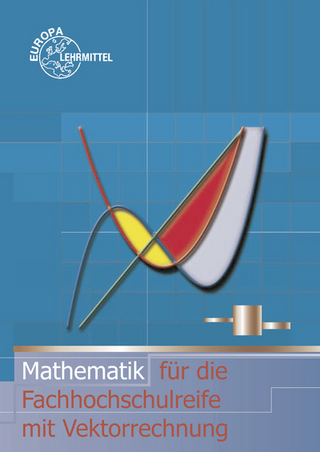
1989
Cambridge University Press (Verlag)
978-1-108-44714-0 (ISBN)
The collapse of the Berlin Wall has come to represent the entry of an isolated region onto the global stage. On the contrary, this study argues that communist states had in fact long been shapers of an interconnecting world, with '1989' instead marking a choice by local elites about the form that globalisation should take. Published to coincide with the thirtieth anniversary of the 1989 revolutions, this work draws on material from local archives to international institutions to explore the place of Eastern Europe in the emergence, since the 1970s, of a new world order that combined neoliberal economics and liberal democracy with increasingly bordered civilisational, racial and religious identities. An original and wide-ranging history, it explores the importance of the region's links to the West, East Asia, Africa, and Latin America in this global transformation, reclaiming the era's other visions such as socialist democracy or authoritarian modernisation which had been lost in triumphalist histories of market liberalism.
James Mark is Professor of History at the University of Exeter. He is the author of The Unfinished Revolution: Making Sense of the Communist Past in Central-Eastern Europe (2010), which was nominated for the Longman History Today Book Prize 2011 and selected as one of the 'best books of 2011' by Foreign Affairs. He is co-author of Europe's 1968: Voices of Revolt (2013) and co-editor of Secret Agents and the Memory of Everyday Collaboration in Communist Eastern Europe (2017) and Alternative Encounters: Eastern Europe and the Postcolonial World (forthcoming). Bogdan Christian Iacob is Associate Researcher in the Department of History at the University of Exeter. He is the author of Remembrance History and Justice: Coming to Terms with Traumatic Pasts in Democratic Societies (2015), The End and the Beginning: The Revolutions of 1989 and the Resurgence of History (2012), the editor of the special issue 'State Socialist Experts in Transnational Perspective. East European Circulation of Knowledge during the Cold War' published in the journal East Central Europe and co-editor of Ideological Storms: Intellectuals, Dictators, and the Totalitarian Temptation (forthcoming) with Vladimir Tismaneanu. Tobias Rupprecht is Lecturer in Latin American and Caribbean History at the University of Exeter. He is the author of Soviet Internationalism after Stalin: Interaction and Exchange between the USSR and Latin America during the Cold War (Cambridge, 2015). Ljubica Spaskovska is Lecturer in European History at the University of Exeter and a member of the Balkans Program Committee of the Association for the Study of Nationalities (ASN) World Convention at Columbia University, New York. She is the author of The Last Yugoslav Generation: The Rethinking of Youth Politics and Cultures in Late Socialism (2017).
Acknowledgements; Introduction; 0.1 Going global; 0.2 The long transition and the making of transitional elites in global perspective; 0.3 A global history of the other '1989s'; 0.4 The end of the '1989' era?; 1. Globalisation; 1.1 From socialist internationalism to capitalist globalisation; 1.2 Debt and ideological re-orientation; 1.3 The choice of 'neoliberal' globalisation; 1.4 Authoritarian transformations?; 1.5 Transformation from within; 1.6 Conclusion; 2. Democratisation; 2.1 Reforming elites; 2.2 Opposition from the local to the global and back; 2.3 Alternatives to '1989': authoritarianism and violence; 2.4 Disciplining transition and democratic peace; 3. Europeanisation; 3.1 The early Cold War: a divided Europe; 3.2 Helsinki – re-bordering Europe?; 3.3 An anti-colonial Europe: critiquing Helsinki; 3.4 A prehistory of Fortress Europe: civilisational bordering in late socialism; 3.5 Eastern Europe, a buffer against Islam?; 3.6 After 1989: 'Fortress Europe'?; 3.7 Conclusion; 4. Self-determination; 4.1 The rise of anti-colonial self-determination; 4.2 The Soviet withdrawal; 4.3 Peace or violence; 4.4 Reverberations of Eastern European self-determination; 4.5 Conclusion; 5. Reverberations; 5.1 1989 as a new global script; 5.2 Instrumentalising 1989: the West and new forms of political conditionality; 5.3 'Taming' the left; 5.4 Interventionism and the '1989' myth; 5.5 Eastern Europeans and the export of the revolutionary idea; 5.6 From Cuba to China: rejecting '1989'; 5.7 Conclusion; 6. A world without '1989'; 6.1 Towards the West? Ambiguous convergence; 6.2 Who is the true Europe? The turn to divergence; 6.3 Beyond the EU: post-socialist global trajectories; 6.4 Conclusion.
| Erscheinungsdatum | 30.08.2019 |
|---|---|
| Reihe/Serie | New Approaches to European History |
| Zusatzinfo | Worked examples or Exercises |
| Verlagsort | Cambridge |
| Sprache | englisch |
| Maße | 152 x 228 mm |
| Gewicht | 550 g |
| Themenwelt | Geschichte ► Allgemeine Geschichte ► Neuzeit (bis 1918) |
| Geisteswissenschaften ► Geschichte ► Regional- / Ländergeschichte | |
| ISBN-10 | 1-108-44714-7 / 1108447147 |
| ISBN-13 | 978-1-108-44714-0 / 9781108447140 |
| Zustand | Neuware |
| Informationen gemäß Produktsicherheitsverordnung (GPSR) | |
| Haben Sie eine Frage zum Produkt? |
aus dem Bereich



